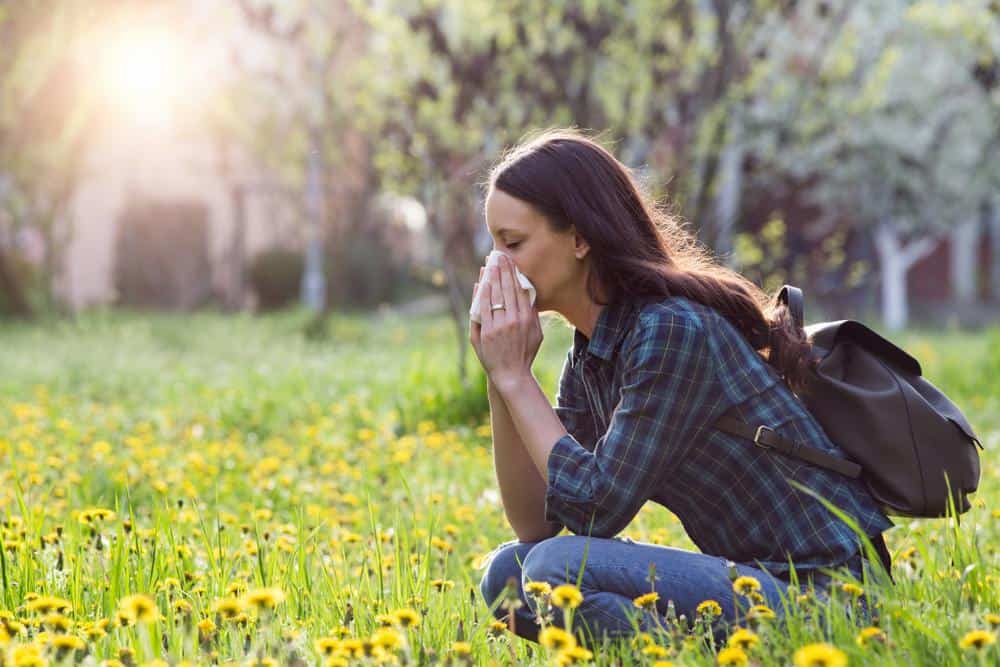People with Allergies may be at Greater Risk for COVID-19 and 6 Ways to Reduce the Risks

Home > Blog > People with Allergies may be at Greater Risk for COVID-19 and 6 Ways to Reduce the Risks
People with Allergies may be at Greater Risk for COVID-19 and 6 Ways to Reduce the Risks
People with Allergies may be at higher risk for contracting COVID-19, because:
We are currently in tree pollen season, which means that our immune system may be a little more stressed now than during non-pollen sensitive seasons.
When allergies are present, things itch-- and then we scratch.
The mucous lining of our eyes, nose, and throat becomes irritated and makes us more likely to become sick.
Allergy symptoms may be confused with viral inflammatory symptoms.
Allergy patients stay indoors.
What Can you do?
1) Avoid the pollens as best you can by staying indoors. Check with pollen.com to follow pollen counts in your zip code. Go outdoors early in the morning or late afternoon/early evening when pollen counts are lower.
2) Avoid spending time outside when winds are high (this stirs pollen more into our air/atmosphere). After a rain however, pollen counts are lower because the rain “washes” the air clean.
3) Staying indoors may be a double-edged sword. While we avoid allergens, we may also be more likely to encounter people with Covid-19. Social distancing is important: use common sense and avoid crowds. Don’t go to movies, malls, or other areas where groups of people gather.
4) Take your allergy medications daily. These medications will reduce allergy symptoms like sneezing, itching, and post-nasal drainage. Over the counter medications are now readily available for allergy sufferers like me. I use generic medications: Cetirizine (generic Zyrtec) one 10 mg tablet daily and Fluticasone (generic Flonase or AllerFlow at Costco) two sprays each nostril every night after I use my NeilMed nasal rinse. The trick is to start these medications before your typical allergy season and take these medications daily to assure you’re covered.
5) Try not to scratch your eyes and nose if they itch. IF you were exposed to Covid-19, you will self-infect yourself when your fingers reach mucous membranes.
6) Allergy symptoms may cause coughing. However, severe trouble breathing and fevers are NOT associated with allergy. If you have a fever, shortness of breath, and severe coughing, seek medical assistance.
Sinus and Allergy Wellness Center is here for you. If your allergy symptoms are worse than usual and difficult to control, schedule an appointment with us so that we can help reduce your allergy symptoms and return your inflamed mucous membranes to normal health. And most important, we pledge to do our best to keep them healthy.
Follow CDC guidelines and reference this link to stay up to date with current recommendations in your local area and consider viewing our services like Balloon Sinuplasty
Disclaimer:
The information provided in this article is for informational and educational purposes only and does not constitute medical advice. It is not intended to diagnose, treat, cure, or prevent any disease or medical condition. Always seek the guidance of your physician or other qualified healthcare provider with any questions you may have regarding a medical condition or treatment.
Results may vary: Treatment outcomes and health experiences may differ based on individual medical history, condition severity, and response to care.
Emergency Notice: If you are experiencing a medical emergency, call 911 or seek immediate medical attention.



